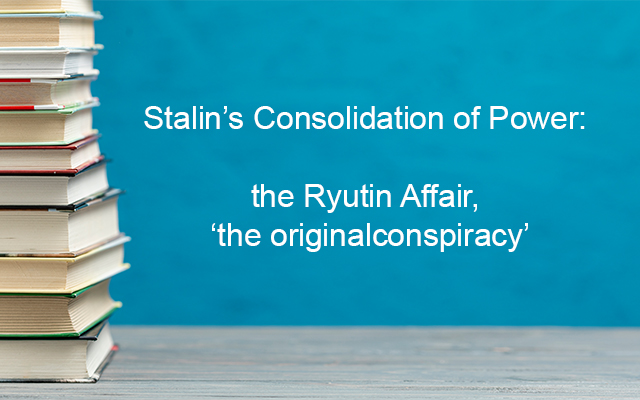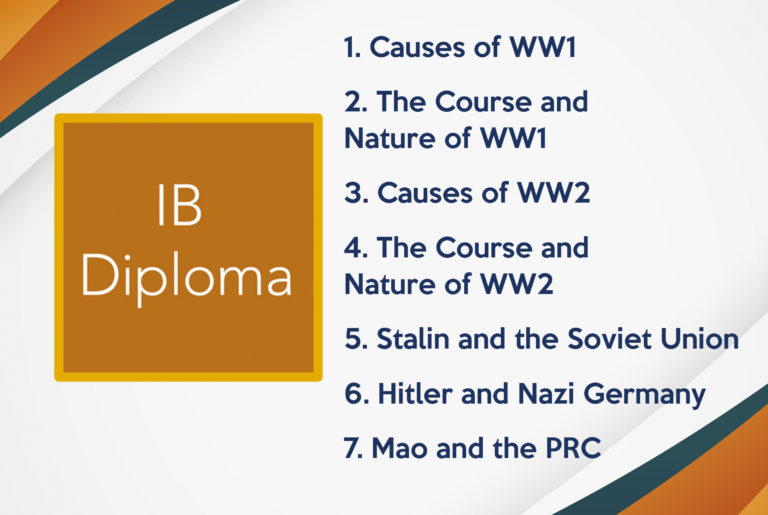Stalin’s Rise to Power: beware the man nobody sees
When Lenin died on January 21st, 1924, the Bolshevik regime was established. It had survived the early days, won the civil war and re-consolidated. The one-party, highly centralised, Marxist state was a reality; the dictatorship of the proletariat was in place.
The overriding issue on Lenin’s death was how the Soviet Union would be governed: by a small group of leaders or by a single leader, and if the latter, who? There was also the matter of Lenin’s testament and its postscript, written by Lenin when he was incapacitated by a stroke, aware that he was probably dying, and was concerned that the Party would split between Trotsky and Stalin factions. I won’t go into that in detail here, I want to focus on how Stalin’s rivals for the “succession” saw him, but Lenin expressed concern that Stalin had too much power already and threw a question over whether he had the right temperament to be a future leader.
So, how was Stalin perceived within the party? Stalin, who was from the most humble background of all the leaders, was also the most poorly educated and, being from Georgia, was something of an outsider. Russian was his second language and he spoke it with a strong Georgian accent. He was intelligent but was no match for the intellectual brilliance of Leon Trotsky or Nikolai Bukharin.
By the age of twenty-one Stalin was a committed Marxist revolutionary, and Lenin’s What Is to Be Done? (published in 1902) had won him over to Lenin’s path to revolution: a tightly knit vanguard party of dedicated revolutionaries. As a committed Bolshevik, before 1917 Stalin focused on raising funds, mostly through bank hold-ups and train robberies. He was arrested, by no means for the first time, in February, 1913, and exiled in Siberia. He was not to return until Nicholas and Tsarism had been overthrown. As for the October Revolution, Stalin was a member of the Bolshevik Central Committee and the Military Revolutionary Committee but did not play a prominent part in the events that led to the Bolshevik seizure of power. Nevertheless, he was made editor of Pravda, the official newspaper of the Communist Party.
Though never a sycophant, Stalin would disagree with Lenin over specific policies, he never questioned Lenin’s leadership. He was a loyal Leninist to the very core. For his part, Lenin, despite his Testament, had taken a great liking to Stalin and valued his commitment, ruthlessness as well as his thinking. He was intimately attuned to the issues people faced and, as a Georgian, was also sensitive to the nationalities issue. In 1912, having talked about the issue at length, Lenin suggested Stalin write an article on it which he duly did. It made Stalin the authority on the subject and led to him being made commissar of nationalities when Lenin formed his government.
As Commissar for Nationalities he was in charge of officials in the many regions and republics that made up the vast USSR or Soviet Union (as it had become in 1922) and, as the Liaison Officer between the Politburo and Orgburo (and Stalin was a member of both), which he had been since 1919, he was in a unique position to monitor both the Party’s policies and its personnel, while as General Secretary of the Party, a position Lenin foisted him into in 1922, he both recorded and conveyed Party policy. So, as Lenin had raised concern in his Testament, Stalin did indeed have ‘unlimited authority concentrated in his hands’. And he used it to greatest effect in his power of patronage, appointing individuals to key positions of power in both Party and government, expecting in return to be able to count on their support when required.
What is more, the so-called ‘Lenin enrolment’, the drive by the Party between 1922 and 1925 to recruit more proletarian members had resulted in Party membership almost doubling to 600,000. The task of vetting the new members fell to the officials of the Secretariat, under Stalin’s direction as General Secretary. These new members were not particularly politically savvy or powerful but they did know that Party membership, and membership of the various Party committees at local and regional level, benefited them (that’s why many had joined in the first place), and they were not going to upset the person at the top of the patronage ladder: Stalin.
So, Stalin’s promotion to, and work as, General Secretary of the Party proved crucial for, no matter the superior intellect or debating skills of his rivals, no matter even if they were right, he could always outmanoeuvre, outvote and so defeat them.
Stalin was described by Nikolai Sukhanov, a Menshevik and author of Russian Revolution, as a ‘grey blur’ (Stalin would have his revenge, having him shot in 1939), whilst Trotsky labelled him, the party’s ‘outstanding mediocrity’ (Stalin had him killed – by an ice axe – in 1940), whilst his nickname was ‘Comrade filing cabinet’1. His demeanour was modest and unassuming and he was no great orator, nevertheless he showed himself to be an astute political operator.
After Lenin’s death in 1924, Stalin did everything possible to tie himself to Lenin. Stalin made sure to orchestrate Lenin’s funeral so as to present himself in the best possible light (and Trotsky in the worst). He gave a series of lectures at Moscow university which were published in Pravda before being published in a book, The Foundations of Leninism. It sold more than seventeen million copies and came to be regarded as a “must-read” text. A sign of things to come could have been garnered from a speech he gave just before Lenin’s death which was published as Trotskyism or Leninism? And at the end of 1924, in an article entitled ‘October and Trotsky’s theory of permanent revolution’ which was published in newspapers he ridiculed the notion and argued instead that it was ‘perfectly possible and even probable’ that Russia could go it alone. So even before Lenin’s death, Stalin had begun to manipulate the way people were seen as either Leninists or non-Leninists, and a non-Leninist was an anti-Leninist, an enemy of Soviet Russia.
But still he seemed to be the man in the shadows. There are numerous references to how Stalin, at meetings, said little but watched and listened a lot. Boris Bazhanov, Stalin’s secretary for Politburo matters from 1923 to 1925, wrote, ‘Stalin did not confide his innermost thoughts to anybody. Only very rarely did he share his ideas and impressions with his closest associates. He possessed in a high degree the gift of silence, and in this respect he was unique in a country where everybody talked far too much.’2 He was playing a waiting game, leaving others to make mistakes before exploiting them. As Alan Bullock points out he showed oodles of persistence, patience and caution.3 And all this led to him being underestimated. Beware the man nobody sees!
1 Quotes from Richard Overy, The Dictators, p. 9
2 Quoted in Alan Bullock, Hitler and Stalin: Parallel Lives, p. 93
3 Alan Bullock, p. 194





